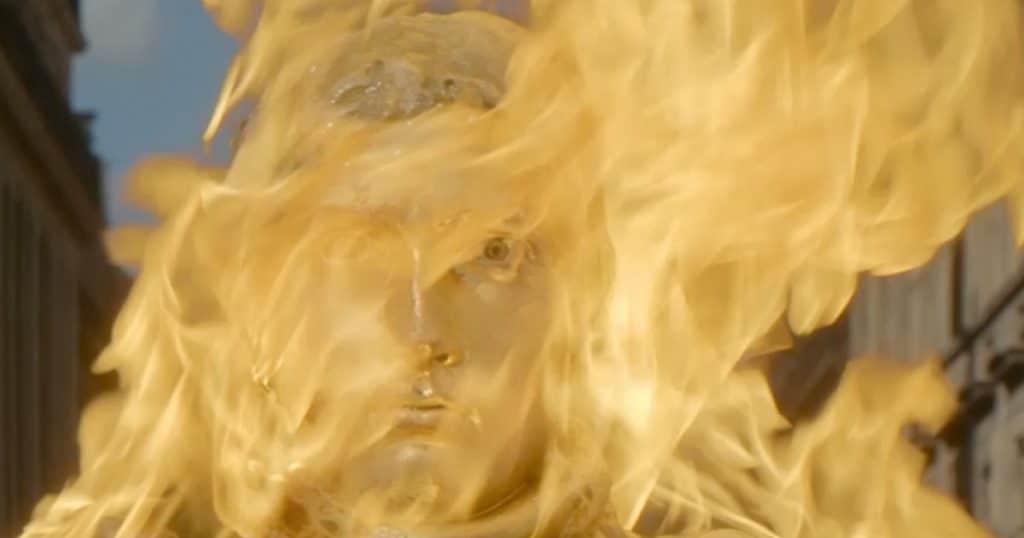Nocturama is not only a gripping (and tense) drama/thriller but also a fascinating narrative exercise whose strength turns out to be its main weakness
Nocturama (2016)
Written and directed by Bertrand Bonello. Starring Finnegan Oldfield, Vincent Rottiers, Hamza Meziani, Manal Issa, Martin Petit-Guyot, Jamil McCraven, Rabah Nait Oufella, Laure Valentinelli, Ilias le Doré, Robin Goldbronn, Luis Rego and Hermine Karagheuz.
When Nocturama begins, the first thing we see is the city of Paris from an aerial view. Then, we start to follow a group of teenagers from different backgrounds who seem to know one another and yet meet several times along their way without speaking a word. They look like they are planning something, but the film is not in a hurry to fill us in. At 2:07 pm, we see Yacine (Hamza Meziani) take the subway at La Fourche. Sabrina (Manal Issa), Mika (Jamil McCraven) and Samir (Ilias Le Doré) are sitting on the train in silence and acting as complete strangers. Samir gets off and dumps his mobile phone, but he has another. Mika carries a package.
Somewhere else in the city, at the exact same time, Sarah (Laure Valentinelli) uses her phone to take a picture of the time on her watch before leaving her place. Sabrina then checks in at the luxurious Hôtel Regina using a rehearsed line. While André (Martin Petit-Guyot) has a meeting with a minister at 14:30, David (Finnegan Oldfield) and Yacine head to the business district of La Défense to sneak into a building. Everything is meticulously timed and all of these characters are like engines in a machine, moving with a precise rhythm through dozens of streets and subway stations towards something that could be extremely dangerous.
French director Bertrand Bonello (House of Tolerance, Saint Laurent) takes a good time to show us the minutiae of their plan (almost the entire first half of the movie), bringing to mind the style of Robert Bresson and his focus on method and details. But Nocturama differs in one key point: all this is told in a non-linear way. Jumping constantly in space and time like a scratched vinyl record, the film works as an intriguing narrative exercise that leads us through the intricacies of a mysterious plan as characters converge at specific moments and in specific places so that it all works without mistake — something quite similar to what Gus Van Sant did in Elephant (2003), which clearly served as inspiration for what Bonello does here.
When we finally witness the striking sight of four simultaneous terrorist attacks, Nocturama throws us together with its characters into a shopping mall full of clothes and lifeless mannequins — an ironic plot maneuver that made me think of Dawn of the Dead (1978). As tension and an unsettling sense of apprehension start to grow among the secluded characters, the empty streets scream outside with the sound of sirens as though they belong in a post-apocalyptic movie. At a certain moment, a woman in the street says “it was bound to happen.” Bonello doesn’t seem to be trying to make any political statement, so it’s hard to grasp what he (and she) means by that, but we kind of get the point.
It looks like Bonello is only interested in suggesting possible explanations for the characters’ actions. Early on, for instance, André is not allowed to enter his bank due to security measures — something you would expect to see in a Black Mirror episode. Some of the characters come from a lower-class background (though not all), and there are Muslims among them who speak about promises of Paradise (again, not all). But it is Yacine who delivers my favorite moment in the entire film when he lip-syncs to My Way, sung by Shirley Bassey, wearing an elegant suit and red lipstick that could perhaps indicate a desperate urge to break out of the closet — and I love the abrupt interruption when the scene cuts mid-song to show the outside of the building overtaken by the sounds of helicopters and police sirens.
Everything screams discontentment, and nothing illustrates that better than the fact that the characters took over the tower of luxury and can’t even enjoy it. If there is one true protagonist here, actually, it is David, and Nocturama focuses more on his apprehension than on the others’ (he even invites a homeless couple into the mall when the waiting becomes unbearable). Although I can admire what Bonello is trying to do, keeping the characters’ motivations open to speculation, this strength, unfortunately, turns out to be the film’s main weakness, since it prevents us from getting close enough to these people to understand why they did what they did, despite all the time we spend in the mall with them.
Besides, the excess of style sometimes borders on self-indulgence, and the non-linearity of the plot becomes tiring after a while. Don’t get me wrong, the editing is superb, and we never get lost, even as it cuts back and forth between scenes that take place at the same time. The soundtrack is also great, and the long Steadicam shots help increase the tension (exactly like in Elephant). But Nocturama could have been a lot better in the end if Bonello had just decided to explore his characters a bit more so that we wouldn’t see them as empty shells.





